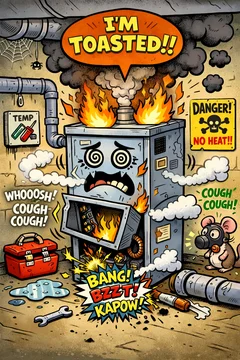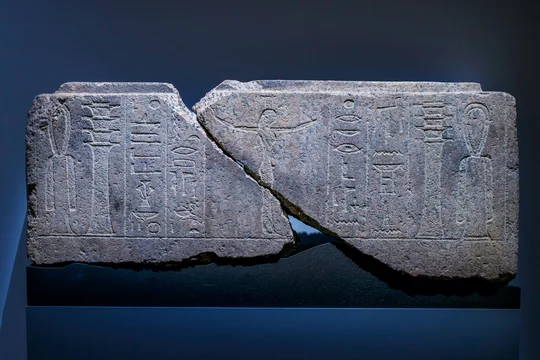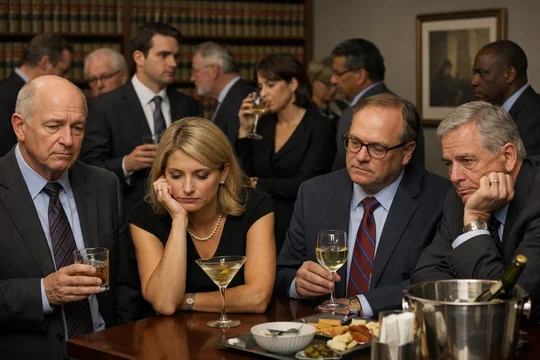
In D. Del. the vast majority of discovery motions are brought as discovery disputes. Basically, the parties meet-and-confer, and if they are unable to resolve the dispute, they file a joint letter or jointly call chambers (depending on the judge) to schedule a conference. In the lead up to the conference, they then file short (2- to 4-page) letters about the dispute, and the Court resolves it—possibly before the teleconference.
Do We Even Have a Dispute?
Sometimes, though, the process breaks down when the parties don't agree that they actually have a dispute. That's what …

We've posted a lot about motions for reconsideration, which tends to be a risky procedural maneuver that rarely wins (although it does happen) and often backfires by further burdening a busy court.
Motions for reconsideration can be granted where there is new evidence, a change in controlling law, a clear error of fact, or a clear error of law. This week, we got a lengthy decision from Chief Judge Connolly that touches on what exactly a "clear error" of law means.
The Court found that the standard for "clear error" is actually pretty unclear in Third Circuit and Supreme Court precedent—although other courts have addressed it:
The parties did not cite, and I have …
I like to think we are getting in to spring. That new life is on the verge of breaking free of the currently cold and fetid ground. That Persephone is not held up on some unusually difficult underworld errand. That we may again be renewed.

In that spirit of renewal, I bring you the opinion in Ferrer Int'l S.A. v. Verge Analytics Inc., C.A. No. 24-694-RGA (D. Del. Feb. 24, 2026). That case dealt with a surprisingly novel set of facts.
The plaintiff filed a complaint and the defendant filed counterclaims, which the plaintiff answered. Then, there was an amended complaint, followed by amended counterclaims that were identical to the original counterclaims. The answer to those counterclaims, however, was different from the previous answer, with some allegations that were previously admitted now denied.
The defendant moved to strike these changed responses to the counterclaims, "premised on the theory that Plaintiff could not substantively change its responses to the unchanged allegations of the counterclaims."
In the spirit of the season, Judge Andrews denied the motion, finding that the plaintiff was free to start anew, unfettered by its old responses:
In this case, Plaintiff was required to respond to Defendant’s amended pleading. Plaintiff was not limited to copying its previous response to the counterclaims. It could treat them as new counterclaims.
Id. at 2.
And so let us all bask in the coming light of a new and stronger sun. Free to reconsider old bargains and break new ground.
I am so cold.

This is exciting! Today, the District Court posted the prospective 2026 update to the local rules, for public comment!
(Seriously! It doesn't happen all that often.)
So, what's new? A redline is available at the link above. From a very quick review, here are a few notable additions and changes. The new rules:
- Specifically ban "exactly 24 point" line spacing for briefs. Some attorneys had used this to try to fit more into the page limits. At least one judge had noticed this practice, and prohibited it. Now it will be clear that this is not allowed. …

In Pierce v. Delaware River and Bay Authority, C.A. No. 24-679-RGA (D. Del.), an employment case, the defendant filed a pretty typical 20-page motion for summary judgment that sought summary judgment on all of plaintiff's claims.
In response, the plaintiff filed a motion for 10 additional pages for its answering summary judgment brief, in order to address all of his claims, including "retaliation under the First Amendment, and Defamation under 42 U.S.C. § 1983 and state law." Id., D.I. 54 at 2. The defendants opposed.
Or, at least, they did in theory. The Court granted the motion before the defendants filed their responsive brief, and the plaintiff received 50% more pages than …
Local rule 7.1.1 is probably the one I cite to the most. Every time I file a non-dispositive motion, I've got to add in a little note along the lines of "pursuant to D. Del. LR 7.1.1, counsel certifies that reasonable efforts were made to reach agreement on the subject of this motion, including a meet and confer involving Delaware counsel."
I use it so often I futzed with my autocorrect settings so Word automatically inserts it whenever I type "INSOLENT FOOLS." (I tried to pick something that I wouldn't normally type in a brief, that would also give me a bit of joy. It has made typing my many letters to the editor harder though.)

Today's case is a reminder that you really do have to get local counsel on that call, even if its a big hassle.
The parties in Anthony Turiello v. Central Sprinkler LLC, C.A. No. 25-497-GBW (D. Del.) had a discovery dispute. They raised it in the usual way before Judge Williams, filing a joint form letter requesting a teleconference on "Plaintiff’s request for Defendants to consent and/or provide a release to certain taxing authorities subpoenaed by Defendants in this case." Id. at D.I. 83.
The only thing unusual was that, rather than note the name of the Delaware counsel for defendant who was involved on the meet and confer, the letter explained that he was unavailable do to obligations in another case:
Delaware Counsel for Defendants was aware of the scheduled meet and confer and copied on all correspondence related to the meet and confer and the underlying discovery dispute issue but was unable to attend due to trial preparation obligations in Civil Act. No. 20-1589-JFB-EGT, in which trial began on February 9, 2026.
Id.
Notably, this was not a case where ...

This is a new one. In Bardy Diagnostics, Inc. v. iRhythm Technologies, Inc., C.A. No. 24-1355-JDW (D. Del.), the plaintiff moved to amend to add two recently-issued patents to the case.
It filed its motion after the deadline to amend, which meant that it needed to show FRCP 16 good cause which, in this context, means that it had to show that it was diligent.
The defendant opposed the motion by arguing that the plaintiff was not diligent because (get this!) it waited too long to file its patents:. Not-at-all-shockingly, the Court did not go for that:
[Accused infringer] …

As Nate noted a couple of weeks ago, "we've milked . . . an astonishing 8 posts out of the saga of Rein Tech, Inc. v. Mueller Systems, LLC." I think the actual count is now 11, but I truly expect that this will be the very last one.
No promises, of course.
Yesterday, the Court issued its opinion on the defendant's sanctions motion, filed after repeated violations of the protective order. As we've discussed, this time the inventor, who is also an attorney, continued to prosecute a patent in the same field despite having seen the defendant's Attorneys' Eyes Only production, and despite the protective order's prosecution bar.
The inventor had argued …
There's nothing better than a case with good facts. I mean, I'm a lawyer, I think the law is pretty interesting. But 101 jurisprudence doesn't usually make for the best cocktail party chatter (unless you're surrounded by other lawyers, which doesn't normally make for the best cocktail party).

Judge Hall had a fun case yesterday that had some pretty fun facts for your next gathering with the normals, as well as some neat law for your next lawyer Hoedown.
Yangjiang Xinhe Houseware Co., Ltd v. Telebrands Corp., C.A. No. 25-365-JLH (D. Del. Feb. 11, 2026) looked like a typical DJ action. The plaintiff was allegedly a foreign supplier of hoses to various resellers …